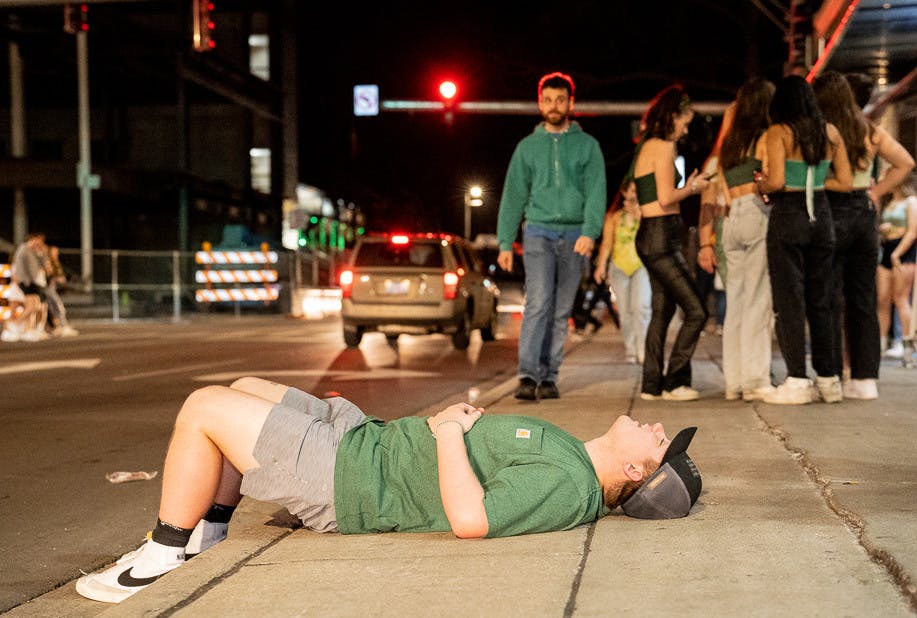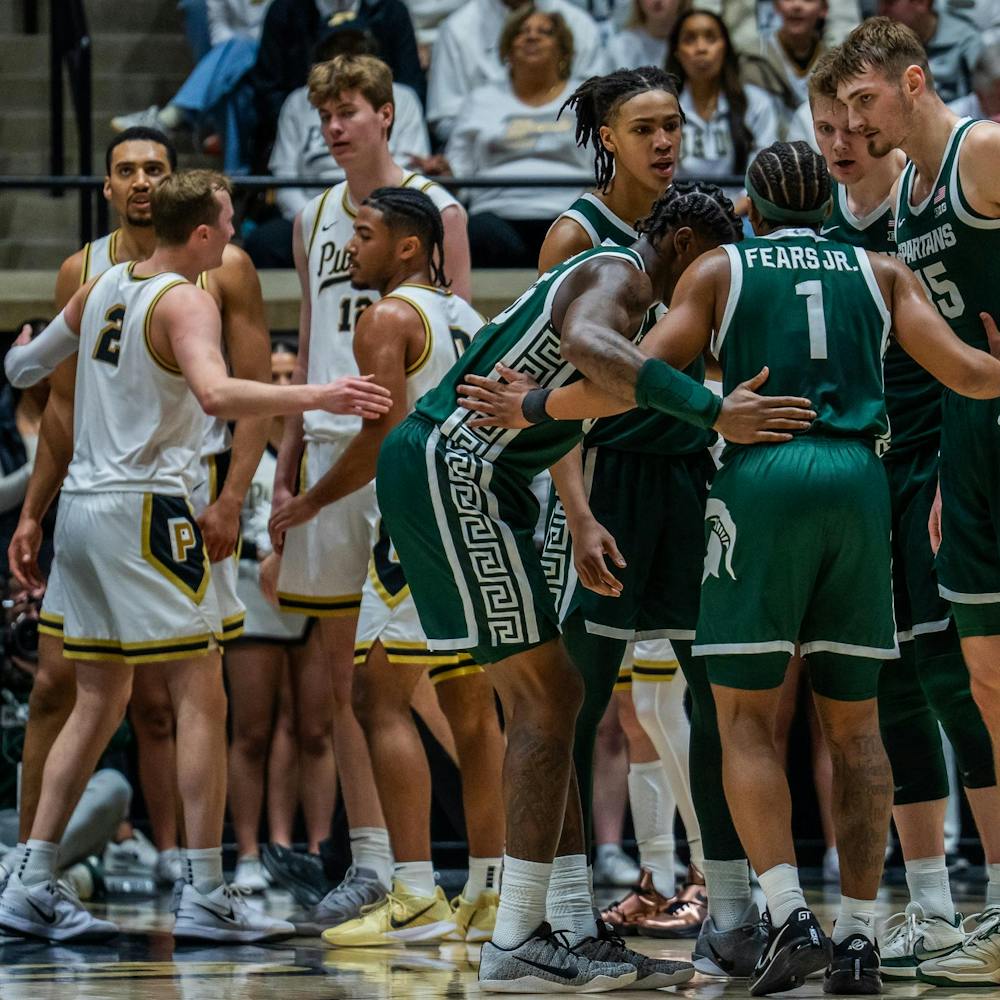Whether you like it or not, alcohol and drugs play a prominent role in what is perceived as the “college experience”.
Especially at MSU, where most key experiences tend to have an alcoholic aspect to them. Every weekend, students eagerly withstand hour-long lines to get into the local bars. Football fans litter campus with solo cups and beer cans before each home game.
Professor of rehabilitation counseling Andrew Nay said that colleges provide the conditions to create a subculture that can exacerbate substance habits.
“(College) is really people developing and learning from one another, about other people's actions and activities, and then how they perceive to engage in certain activities,” Nay said. “You're basically creating a subculture that can feed off itself in terms of behavior and peer pressure and development.”
Nay said there are several sources of stress associated with the college environment: unfamiliar surroundings, difficult coursework and trying to mediate anxiety or depression. Neurologically speaking, these substances can make these stressors feel less detrimental, as they manifest a pleasurable response.
“The unfortunate truth is that many substances will produce a euphoric type of effect,” Nay said. “It takes away the pain or it diminishes the reality or realization that these tough things are happening.”
Most students that come to college are leaving an environment in which their guardians watched closely over them. It can feel exhilarating to enter a stage in which there are seemingly no rules or people in charge of them in their free time.
Shruti Pandey said that, after stumbling upon this newfound freedom, it’s extremely common for students to buy fake IDs as soon as they arrive at MSU.
“I think any person who's coming to this university knows how integral drinking culture is to the entire environment here,” Pandey said. “I can't really think of any event that wouldn't be ‘pre-gamed’ to a certain degree.”
College culture might not be entirely to blame for the immediate immersion of students into activities that involve alcohol. Nay said there are large parts of our society that don’t recognize the dangerousness of the high consumption of alcohol.
“Using alcohol or other substances in the social settings, is just a very, very common normative type of behavior that we've been living with in society for thousands of years,” Nay said.
MSU’s Alcohol and Other Drug Program Coordinator Cara Ludlow said that we usually only think of substance problems manifesting in the “big stuff”-- health issues, legal trouble, and financial hardships -- but it often affects students in a number of smaller ways.
“For college students, those ‘little ways’ may look like damaged friendships, strained family relationships, a lack of motivation, financial challenges, sleep problems, increased anxiety, depression, or paranoia,” Ludlow said.
While it’s important to note the potential harmful implications, Ludlow said that most MSU are thoughtful when it comes to their alcohol use: 65% of students consume less than 4 drinks when they go out, and 27% of students choose not to drink at all or drink very rarely.
Pandey said that at the end of the day, most students are looking for a place to belong, but that doesn’t have to mean partaking in substances or partying.
“You can find that community that you're seeking as a Spartan anywhere,” Pandey said. “It doesn't necessarily have to stem from party culture.”
If you are concerned about your substance use, visit this site.
Learn about medical amnesty here.
MSU Alcohol and Other Drugs Education Program
Support student media!
Please consider donating to The State News and help fund the future of journalism.
(517)-884-6598
Collegiate Recovery
(517)-355-5564
Spartans' Organization for All Recovery (S.O.A.R.)
(517)-355-5564
Discussion
Share and discuss “College drinking: a harmless experience or an escapist habit? ” on social media.








